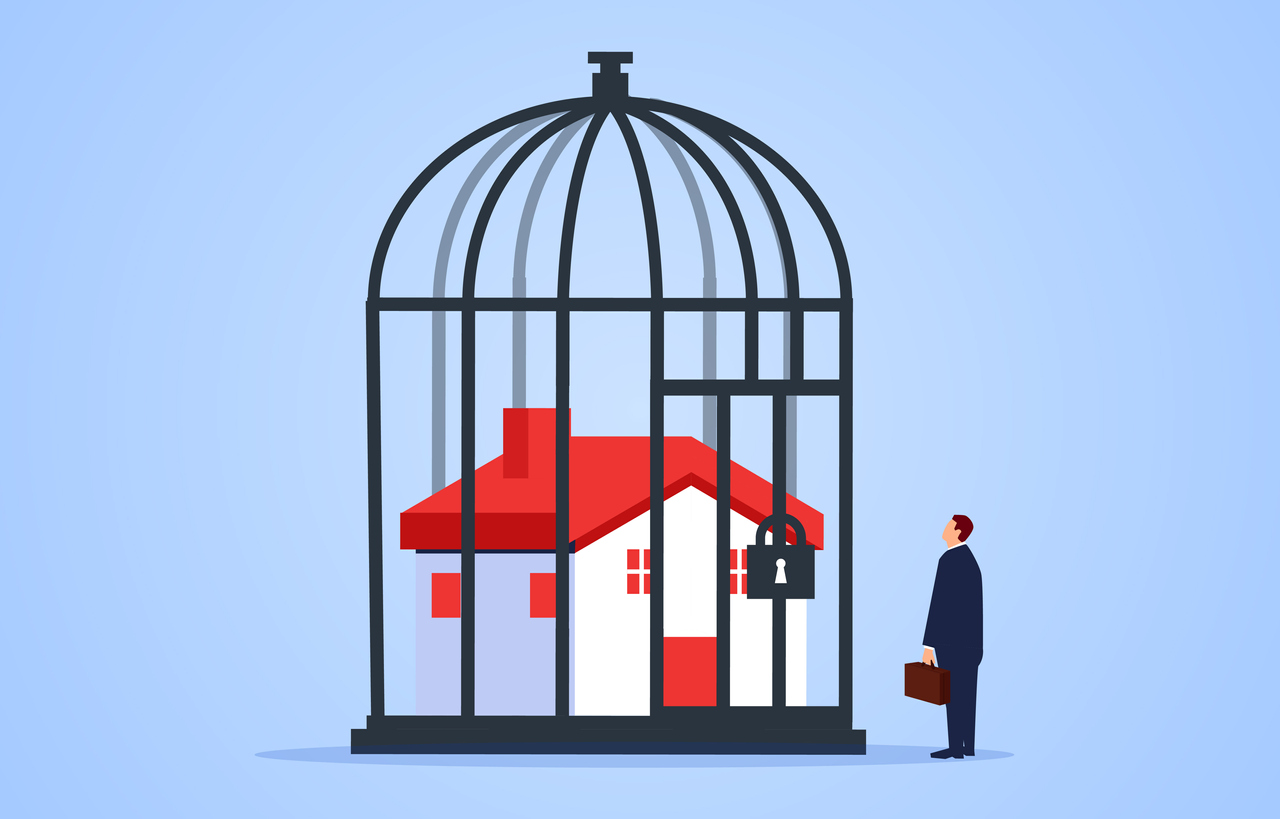
Tough decisions loom for homeowners on COVID-19 loan deferments
Thousands of Australian homeowners granted payment deferments on their mortgages at the height of the COVID-19 pandemic have a tough choice to make in the coming weeks.
Those six-month payment deferments will start expiring in September, and while another payment holiday is on offer for up to four months, taking it could be a really bad idea.
“You’re not avoiding any of the interest on the loans,” says financial advisor Corey Wastle, the founder of Verse Wealth in Melbourne. “You’ll need to catch up on the deferment on the course of the loan. It’s only a strategy that someone should think about when they’re struggling to meet their short-term needs.”
According to the last statistics released by APRA, the Australian Prudential Regulation Authority, payments on 896,215 loans had been deferred as of July 9, representing a hold on repaying borrowing worth a total of $266 billion.
That includes 488,249 housing loans – nine per cent of all mortgages – and 227,292 small business loans, 13 per cent of such debt facilities.
The banking industry in consultation with APRA began offering six-month loan deferments to anyone who asked for one as the lockdowns began in late March.
Australian Retail Credit Association chief executive Mike Laing told Together Australia that banks’ call centres were so overwhelmed that they were granting payment deferments on the basis of 30-second phone calls.
“This situation that was happening didn’t have any precedent in financial services history – such a large number of people (seeking assistance) in such a short period of time.”
Some people sought the payment holidays not because they had experienced financial hardship but because they wanted to hoard cash, Mr Laing says.
“They had a fear they could lose their jobs,” he said. “Everyone’s in a very difficult position here, because no one is sure what is actually going to happen, particularly in those industries that have been affected the most – cafes, retail and travel. No one’s got a crystal ball to know when it will start up again.”
Lenders began checking in with borrowers after three months to see if they could resume payments and some did, Mr Laing says.
But others did not and their six-month payment holiday will begin expiring in late September.
The banking industry says that while a further payment holiday of up to four months will be on offer, the deferments won’t be automatic and are only available will be offered on a case-by-case basis.
Like Mr Wastle, Mr Laing says borrowers really shouldn’t take a payment holiday unless they’re in genuine hardship.
A homeowner who is 10 years into a 30-year, $300,000 mortgage and who takes a six-month payment holiday on that will end up paying an extra $8,000 over the course of the loan, he says. They’ll pay $99,000 in interest rather than $91,000.
“Obviously, for consumers, the longer the deferred payments, then the higher the amount they’ll end up paying,” he said. “It’s in the consumer’s interest, if they can afford to make payments, they should start making payments.”
Pierce Hanlen, a financial advisor with Hewison in Melbourne, acknowledges it can be hard to think about payments so far away.
“If it’s a 30-year loan, it’s hard to think about your life in 30 years … we can’t think about life long-term. We’d rather help ourselves in four months than think about things over 30 years.”
But he urges people to do so and notes it would also be ethically dubious to take advantage of an assistance plan put in place to help people hit by COVID-19 containment measures if one doesn’t truly need it.
GENUINE NEED
For those who are experiencing genuine hardship, Mr Laing urges them to be proactive and reach out to their lender if they don’t think they can resume making payments.
“From a bank’s perspective, they’d much rather you talk to them than sit back embarrassed” about your financial situation.
“It’s a tough situation to be in, but you shouldn’t be embarrassed,” he says. Lenders deal with people in financial difficulty every day, and borrowers do have rights.
People who were up-to-date on their payments before the pandemic wouldn’t see any impact from a deferment on their credit report, though, he said.
Ultimately for some people who recently bought a house, a longer payment deferment may also put them at risk of owing more on a property than it is worth, he added.
Homeowners in that situation will have think long and hard about their future in that property, he advised.
Mr Laing also urged borrowers facing difficulty making loan payments to be open with their families about it, and to be very careful about taking on more high-interest debt from second-tier lenders.
CONTROL YOUR FINANCES
Mr Wastle says people in financial difficulty – or anyone, really – should have a strategy of managing their cash.
“Know what’s going in and know what’s going out.”
He advises clients to have their cash go into one account and then have it automatically debited into four different accounts: ones specifically designated for bills, lifestyle, savings and travel.
If someone is in financial trouble, they might not be putting anything into savings or travel, but they can still separate their money into bill and lifestyles accounts, he said.
“Having your cashflow under control prevents bad habits creeping in.”
























